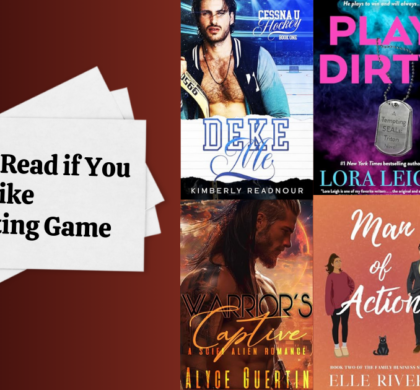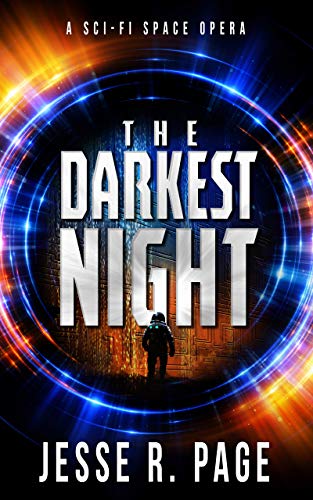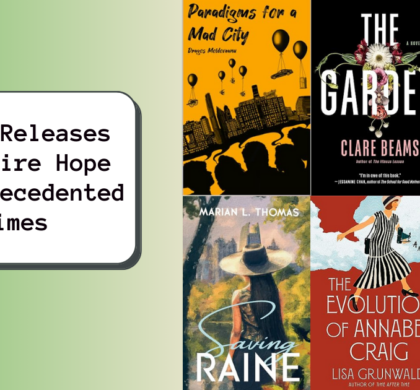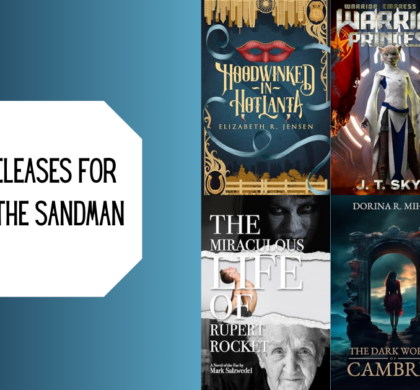Interview with Jesse R. Page, Author of The Darkest Night
21 Jun 2019
What can you tell us about your new release, The Darkest Night?
The Darkest Night is a science fiction novel with elements of military sci-fi, archeological drama, as well as mystery and a slight dash of horror.
As you read The Darkest Night, you will also notice that the main protagonist is a historian and every character seems to have at least a basic understanding of history, both ours as well as the fictional history of the universe. Indeed, behind the scenes is a vast and sprawling world and its history serves as much as a part of the plot as if it was another character. The book is designed for those who have always loved to sit down with a book by Heinlein, Asimov, Clarckson, Card or Zahn or one by Comnene, Gibbon, Tuchman or Thucydides and everyone in between.
What or who inspired you to become an author?
As a young child The Darkest Night was unrecognizable compared to what it is today. It was similar to any story a creative kid would tell with Legos and action figures. My brother, now a brilliant scientist and a chemistry teacher, also was a creative story-teller and we played off each other pitting our creations together in verbal battles (he never quite got to into Legos, he is five years older than me). He suggested to me that I eventually write a book. The idea was something I never really took seriously until I was in college. I never considered myself a good writer, merely from a family of writers. My parents ran the local newspaper, I was in college studying history at the time, and both my brothers had written several creative, if unpublished, works in science-fiction and puppetry short films and skits. As if I needed another reason I remember looking as a Christian at science-fiction author (The Darkest Night is written by a Christian author, but I would not call it “Christian Science-Fiction” anymore than I would call Star Trek “Atheist Science-fiction”) and seeing only C. S. Lewis as a Christian Sci-fi author even though there were plenty of fantasy books, including his better known Narnia series.
As far as direct influences on my storytelling, characters and style I have many influences ranging from television series Babylon 5, which is likely the largest as far as world-building all the way to history and mythology, The Three Musketeers, and others. The main antagonist is a sort of villainous Admiral Yi Sun-Shin mixed with a dash of Horatio Nelson only working for a Fascist government more related the Italian or Spanish scale than the German ideas.
What’s on your top 5 list for the best books you’ve ever read?
That is a tough question, I’ve read quite of few good ones. The Bible, my faith is very important to me. If I had to pick a favorite book within it I would say Ecclesiastes.
Six Frigates: The Epic History of the Founding of the U.S. Navy by Ian Toll is the best book to begin a study of American history. It talks a great deal about the origins of the U.S. navy and Marines Corps, our first international engagements, Napoleonic Europe, the nature of politics, the foundations of the two party system, etc. etc. etc. It is also surprisingly short for all that it packs in and is the best history book I’ve ever seen for a layman’s reading level.
The Lord of the Rings by J.R.R. Tolkien.
I greatly enjoyed Hyperion by Dan Simmons, a fact that likely surprises many people who know me. It has some bad language, which I have no problem with done right, as well as some really anti-Christian beliefs, but I can’t deny it is the best written science-fiction novel I have ever read, apart from my own of course.
Cantar de Mio Cid in my opinion is the best of the great epics of European literature over even the likes of Song of Roland and even Beowulf.
Say you’re the host of a literary talk show. Who would be your first guest? What would you want to ask?
As an independent author trying to find his way with his first book I would invite a guest who’d been down that road and ask him or her to share their experiences. Self-Publishing is almost akin to running your own small business, one that in the initial stages does not produce a whole lot of results sometimes. It is a fascinating business. I think a lot of people, myself included until recently, figured that an author’s job is to, well, be an author. But writing the books is the easy and fun part.
When a single person mistakenly picks up your novel after all that work and leaves a review meant for another series, that is frustrating. But you move on. When twelve publishing houses don’t even bother to reply to you, you move on. When eleven literary agents do not even give a reply, you move on. When the algorithms of Amazon.com leaves your readers unable to review and your book misprinted you move on and you fix the problem.
Through all of that, or what ever problems that author has it is the ones who still have a passion for their work that stand above all the rest. Anyone who is passionate about what they write, their characters, their stories, or in non-fiction the stories people and research, are worth more than gold. Those are the people I love hearing from and asking about how they got that passion, what spurred them to think, write and create.
What’s your favorite thing about writing?
I love the subtleties of writing. When a minute detail becomes a key plot point later and you lean back in your chair with a smile. Even if only one person in a hundred who reads it catches it, or another fifty who have read it again, that alone makes all the work satisfying, like hiding a gem inside a bale of straw. That said, that is only my favorite thing. There is very little I dislike about writing. I love the sound of keys striking, I love the smell of coffee in the morning, and tea in the afternoon (not always caffeinated) the sound of my dog snoring behind me and the rain falling at eleven o’clock when you physically can’t get to sleep until you’ve completed that scene in your head, the characters coming alive on the page, another chapter completed, another page written and that feeling of excitement and anticipation when you come up with a better line.
What is a typical day like for you?
I have no typical day. I really never have. These days, I generally wake up at six, head into the office a half-hour’s drive away, work eight hours in the woods at my job, come home anywhere between five or seven. Then I usually read or write for a few hours and then go to bed. That is the boring average day of Jesse R. Page. I live in a rural county. I like to say that I am a half-hour to an hour from everything and anything, but twenty minutes from nothing.
That is not to say that is every day. My unusual days are quite common, a chance to go to a library or museum of which there are several here in Virginia. I even had a chance to work on the ships at Jamestown for an afternoon. I love traveling and been to three continents and several other countries, even living for three months in Prague. This past hurricane season my mother and I went to see my brother a half a country away in Texas by car. Occasionally over the years ‘I have gone to conferences, taught and created classes, lectured and gone to hear speakers at conferences. And I must confess that my brother an I released a kraken on the unsuspecting town of Lebanon while driving to see my favorite band Renaissance in New York City.
What scene in The Darkest Night was your favorite to write?
My favorite scene to write was the moment two main antagonists of the story finally meet. While both of them have very different attitudes and goals the imagery of Lord Sali-Mandu and Vladimir Winninski, if that is his real name, standing on a frozen ocean on the dark side of a tidally-locked planet which is on fire from a desperate battle is quite good. The way that Sali-Mandu starts explaining his reasoning almost echoes the protagonist’s earlier views in a negative light and the action of the scene… without going into too many spoilers… leaves a tale of mystery, a chance at victory and twists it to a tale of simple survival. It is a key scene, that in many ways is one of, if not the most important, in the story’s progression. But writing any scene with Sali-Mandu is a lot of fun.
Do you have a motto, quote or philosophy you live by?
I have several depending on the situation. I am noted for using the word “indeed” a bit too often and I always great people with “greetings and salutations,” and my favorite word is schiltron. Some of my favorite quotes include:
“Even if I knew that tomorrow the world would go to pieces, I would still plant my apple tree.” -Martin Luther
“Life is pretty simple: You do some stuff. Most fails. Some works. You do more of what works. If it works big, others quickly copy it. Then you do something else. The trick is the doing something else.” -Leonardo da Vinci
“Under their guidance I beheld the marvels of old Babylon. I marched with the Ten Thousand of Xenophon, I witnessed the conflict around beleaguered Troy which doomed that proud city to pillage and flames. I heard the tramp of the invincible legions of Rome, I saw the victorious galleys of the Eternal City carrying destruction to the Carthaginian shore, and I listened to the lofty eloquence of Cicero and the matchless imagery of Homer. They gave me a vision of the world when it was young and it is almost impossible for those who have not travelled that road to reach a very clear conception of what the world now means.” -Calvin Coolidge
“Doveryai no Proveryai.” -Russian proverb
I could and would go on. But at the end of the day I really only have one; “The fear of the Lord is the beginning of wisdom.”
Buy The Book
Sign up for our email and we’ll send you the best new books in your favorite genres weekly.
Related
grant
Recommended Posts

Books to Read if You Like The Hating Game
19 Apr 2024 - Books to Read if You Like..., eBook, News, Romance


